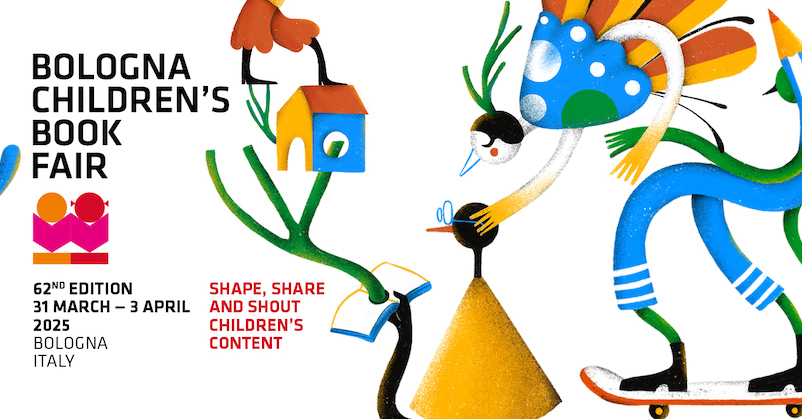“I think of AI as alternative intelligence.” So proclaimed Jeanette Winterson in the Guardian this month. Alternative rather than artificial intelligence, that is: “its capacity to be ‘other’” is apparently “what the human race needs” right now.
It’s not what human writers need. If they didn’t know already, many of them will have learnt from a report published by the Atlantic, a week after the Guardian carried Winterson’s quaint capitulation, of a pirated database of books called LibGen. This is the database that Meta – the company that runs Facebook, Instagram and WhatsApp – has been using to train its AI system, after deciding that using books and research papers under licence would be “unreasonably expensive” and “incredibly slow” (“like 4+ weeks”, according to one Meta manager). Cue the protests from the Writers’ Guild, the Society of Authors et al – amid a succession of similar legal cases currently being fought on both sides of the Atlantic on what is effectively the same inglorious battlefield.
Anyone can search LibGen and find out if their work has been uploaded. Equally available there for programming purposes are Sexing the Cherry and Gut Symmetries, as are many reputable writers’ works, and even back issues of journals such as the Economist, the New Left Review, the New York Review of Books and the TLS. What exactly are we getting in return?
Although we are reassured by sagacious types that an impressive and inevitable revolution is coming (whenever “artificial general intelligence” gets going), the current answer is still: not much. At least when it comes to faking acts of critical or imaginative authorship. Several academics have told us that the publicly available AI services, if asked a specific scholarly question, will reply with a mangled version of their own research. And when the head of the company OpenAI, Sam Altman, published a “meta- fictional literary short story about AI and grief” constructed by a “new model that is good at creative writing”, it was widely pointed out that, aside from the story not being all that good, it also swiped a phrase (“democracy of ghosts”) from Pnin. How absurd – humans can plagiarize Vladimir Nabokov for themselves, surely?
Congratulations to Andrew McNeillie’s Clutag Press, which has long delighted us both prose-wise and verse-wise: it has now achieved its quarter-century in business. After a lull, Mr McNeillie’s magazine, Archipelago, has returned; the new issue, volume 2 number 4, looks closely at the work of the artist Norman Ackroyd. It also includes poems by Vona Groarke, Moya Cannon and the late Michael Longley. The occasion will be marked with a day of readings and performance, “At the Sign of the Corncrake”, at the Weston Library in Oxford, on April 26.
Those who seek the unusual poetic experience may find it in Shropshire the next day, April 27. At two o’clock that afternoon, Soulton Hall, near Wem, will host a reading of the medieval poem Erkenwald, billed here as the “pinnacle” of Middle English poetry. It involves a miracle and a conversation with a reanimated corpse, which makes it unusual enough for us. An alliterative work of the late fourteenth century, Erkenwald survives in a single manuscript, discovered by Thomas Percy in 1757 elsewhere in Shropshire. (It now resides in the cyber-stymied British Library.) It has not been given such a reading for at least a century. A ticket costs £11 via Eventbrite.
The distinctive splashes and dashes of ink could only be Ralph Steadman’s: reproduced above is the artist’s feverish vision of a scene from Treasure Island. Note the brutal repurposing of a crutch here, and the ship at anchor in the bay.
It’s not all about Hunter S. Thompson with Steadman, you know. His version of Robert Louis Stevenson’s tale was first published in book form in 1985, and the introduction suggests that he relished the undertaking. “Everybody”, he writes, “including the respected Squire Trelawney and Doctor Livesey, is smitten blind with a festering desire for gold. There are no paragons in this story.”
Alongside Treasure Island, Steadman’s takes on Alice in Wonderland and Animal Farm also form part of his INKling exhibition, which opened at the Heath Robinson Museum in Pinner last month. Here you may find 1960s London depicted as Wonderland. “The White Rabbit was a commuter, always on the move, the Mad Hatter was a rebellious mod”, Steadman recalls. And Alice? “Always a little dissatisfied.”
INKling runs until May 10.
Literary pubs. Readers may recall that this series, neglected by us for a few months, has covered both memorable writing about pubs and pubs with literary associations. William Amos writes from Lambeth with some more of the latter: the Edgar Wallace in Essex Street, outside the Temple; the Artful Dodger in Mint Street, “where East End Cockneys still survive in their natural habitat”; and over Tower Bridge, in old Horsleydown, the Dean Swift (“although when I was last there no one working there had the foggiest idea what the connection with the Modest Proposer was”). The desecration of Norton Folgate – a misdeed of Boris Johnson’s mayoralty – did for the Water Poet, dedicated to the memory of the wherryman-poet John Taylor (1578–1653).
From Newcastle upon Tyne, Christopher Goulding writes to remind us of Moonfleet (1898), John Meade Falkner’s tale of West Country smugglers. Falkner’s inn, the Mohune Arms, takes its name from the coat of arms of a local aristocratic family, which involves a Y-shaped heraldic cross pall. Hence the Mohune’s nickname: the “Why Not?”. We can see why Falkner, with his antiquarian leanings, would make this cross pall a recurring motif throughout the story. And we would add that there is a hotel, not far from Chesil Beach, where some of the novel’s action takes place, called Moonfleet Manor. The last we heard, every bedroom comes with its own copy of Falkner’s novel. It makes a change from the Bible, we suppose.
The post Alternatives appeared first on TLS.

 By Times Literary Supplement | Created at 2025-03-26 16:05:01 | Updated at 2025-04-05 08:23:21
1 week ago
By Times Literary Supplement | Created at 2025-03-26 16:05:01 | Updated at 2025-04-05 08:23:21
1 week ago







